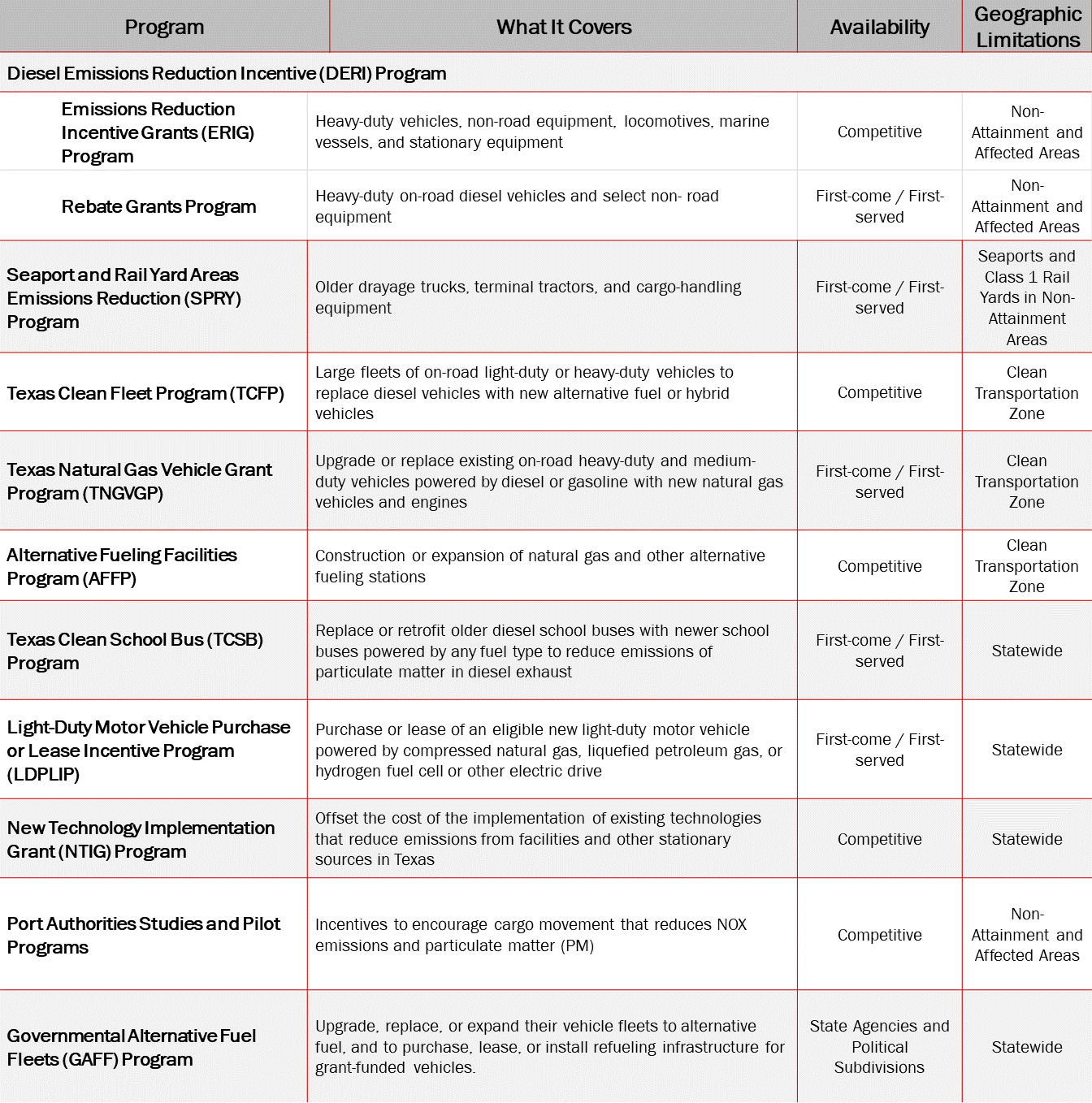Setting up a new energy management program, or growing existing efforts can seem daunting. Building buy in, collecting data, evaluating energy efficiency opportunities, and finding funding is a lot to add to the plate of busy city staff. Fortunately, there are many free technical resources, low or no cost funding, and third party expertise to assist a city to take advantage of energy efficiency opportunities.
State Energy Conservation Office (SECO): Resources for Local Governments
The Texas State Energy Conservation Office (SECO) supports Texas local governments, county governments, public K-12 schools, public institutions of higher education and state agencies, to reduce utility costs and maximize efficiency. The Local Government Energy Program provides a number of integrated services to assist municipalities in setting up and maintaining effective energy efficiency programs. The program assists city officials through energy-efficient partnerships, technical support, preliminary energy assessment services and training workshops.

City Efficiency Leadership Council
The City Efficiency Leadership Council (CELC) is a collaborative network of Texas cities, school districts, and other government entities engaged in partnership and resource exchange in an effort to expand the adoption of energy management best practices in the public sector. CELC engages local governments through regional roundtable luncheons, webinars, city best practices case studies, local government energy reporting assistance, portfolio baselining and benchmarking, technical support and this city efficiency toolkit.
Remote assessments use software-based data analytics to evaluate daily, monthly or interval electricity use data to monitor energy-saving opportunities. These assessments are provided at no cost to selected public entities to help reduce energy bills, freeing up operating dollars for other needs, improving the usability and comfort of facilities.
Technical Assistance for Local Governments and Preliminary Energy Assessments
SECO’s network of engineering firms provide a broad spectrum of customized, on-site, energy-related services ranging from basic consultations to feasibility studies free of charge to local governments. One of the most popular and valuable resources offered by these professional engineering firms are free Preliminary Energy Assessments that include the following elements:
- Analysis of utility bills and other building information to determine facilities’ energy and cost utilization indices
- Recommended maintenance procedures and capital energy retrofits
- Design and monitoring of customized procedures to control run times of energy-consuming systems
- Informal, on-site training for building operators and maintenance staff
- Follow-up visits to assist with implementation of recommendations and determine associated project savings
- Development of an overall energy management policy
- Assistance with development of guidelines for efficiency levels of future equipment purchases
- Facility benchmarking using ENERGY STAR Portfolio Manager
LoanSTAR Revolving Loan Program
In Texas, the LoanSTAR Revolving Loan Program offers cities and other public sector entities low-interest financing for energy and water efficiency upgrades. LoanSTAR loans may be used to finance a guaranteed energy services performance contract (GESPC).
Utility Energy Efficiency Programs
Energy utilities are a common source of incentives and technical support to help you achieve your energy management goals. Utilities have easy access to your facility energy bills and many have incentive programs design specifically for municipal energy efficiency. CenterPoint Energy and AEP Texas offer CitySmart programs featuring similar technical resources as SECO’s programs including energy performance benchmarking, financing and technical assistance. The programs also offers financial incentives for equipment replacement and can even help you develop a communications strategy to promote program goals to decision makers and constituents. Check with your local utility for details on programs to support city energy efficiency efforts.
Air Quality Grants: Texas Emissions Reduction Plan (TERP)
The fuel and energy used by your city’s vehicle fleet are another opportunity to save energy, money and improve air quality. Many cities are interested in increasing the use of electric vehicles and providing electric vehicle charging infrastructure to their community. The Texas Emissions Reduction Plan or TERP program provides financial incentives to eligible individuals, businesses, or local governments to reduce emissions from polluting vehicles and equipment. The TERP grant programs provide grants to reduce air pollutant emissions and encourage the use of alternative fuels for transportation in Texas. The table below summarizes the grant programs. More information is available on the Texas Commission for Environmental Quality (TCEQ) Air Grants website.
For more information about funding availability and eligibility, visit the grant program websites.
- Emissions Reduction Incentive Grants (ERIG) Program
- Rebate Grants Program
- Seaport and Rail Yard Areas Emissions Reduction (SPRY) Program
- Texas Clean Fleet Program (TCFP)
- Texas Natural Gas Vehicle Grant Program (TNGVGP)
- Alternative Fueling Facilities Program (AFFP)
- Texas Clean School Bus (TCSB) Program
- Light-Duty Motor Vehicle Purchase or Lease Incentive Program (LDPLIP)
- New Technology Implementation Grant (NTIG) Program
- Governmental Alternative Fuel Fleets (GAFF) Program
Water: State Water Implementation Fund for Texas (SWIFT)
Energy is required to store, pump, clean, and treat water supplies, therefore water efficiency projects are also energy efficiency projects. The Texas Water Development Board operates the State Water Implementation Fund for Texas or SWIFT, which provides low-interest loans and favorable loan terms to fund water supply projects. Any political subdivision or nonprofit water supply corporation with a project included in the most recently adopted state water plan can be receive SWIFT funding. Eligible projects include conservation and reuse, desalinating groundwater and seawater, building new pipelines, developing reservoirs and wells fields, purchasing water rights, as well as numerous other strategies. For more information about SWIFT check out their fact sheet.
Energy Service Companies
Once your city has decided there is potential for energy efficiency in operations it may become necessary to hire a third party to make energy efficiency retrofits a reality. Energy services companies (ESCOs) offer project development, design, and construction services and can assist your city in assessing energy efficiency opportunities and evaluate economic payback of projects. Guaranteed energy savings performance contracts (GESPCs) are one project delivery method for local governments to implement self-funded energy efficiency projects. To learn more about GESPCs see the recent CELC white paper: Energy Savings Performance Contracting Best Practices, From the Experts
